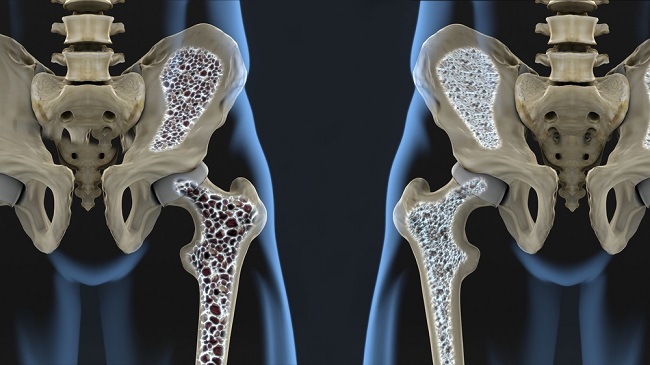Thyrotoxicosis is a condition when the thyroid gland is overactive, causing it to produce too much of the hormone thyroxine. Thyroxine hormone actually has many benefits for the body. However, if the amount is excessive, it can cause thyrotoxicosis which is dangerous for health.
Thyroxine hormone or T4 is one of two types of thyroid hormone produced by the thyroid gland in the neck. This hormone plays an important role in regulating the body's metabolism and the performance of certain organs, such as the heart and digestive tract, brain development, bone health, and muscle function.

The amount of thyroid hormone is regulated by the brain so that it is neither too much nor too little. When thyroid hormone is produced in excess, it can cause various health problems. One of the health problems that often occurs due to too much thyroid hormone is thyrotoxicosis.
Thyrotoxicosis Causes and Symptoms
Thyrotoxicosis can be caused by hyperthyroidism, which is a condition in which the thyroid gland is overactive and produces excessive amounts of all types of thyroid hormones. However, apart from hyperthyroidism, thyrotoxicosis can also be caused by several other conditions, such as:
- Graves' disease
- Nodules or lumps in the thyroid
- Struma ovarii, which is a rare type of ovarian tumor made mostly of thyroid tissue
- Thyroiditis or inflammation of the thyroid gland
- Pituitary tumors
- Side effects of thyroid hormone replacement drugs
When a person is exposed to thyrotoxicosis, the symptoms that can appear are:
- Weight loss
- Heart beats faster
- Tremors or body shaking
- Weak
- Hard to sleep
- Lump on neck
- Not resistant to hot temperatures
- Excessive sweating
- Frequent bowel movements
In addition to some of the symptoms above, thyrotoxicosis can also cause other symptoms in the form of menstrual disorders and psychological problems, such as anxiety disorders, irritability, and difficulty concentrating.
Some Steps for Handling Thyrotoxicosis
If you experience various symptoms above, immediately consult an endocrinologist to undergo an examination and get the right treatment.
To confirm the diagnosis of thyrotoxicosis that you may be suffering from, the doctor will perform a physical examination and investigations, such as blood tests to assess the amount of thyroid hormone, ultrasound, CT scan, or PET scan of the thyroid gland.
To treat thyrotoxicosis, the doctor will perform treatment in the form of:
Administration of drugs
To reduce the amount of thyroxine hormone in the patient's body to normal levels, doctors can prescribe drugs, such as methimazole, carbimazole, or propylthiouracil (PTU).
In addition to these drugs, the doctor may also prescribe beta-blocking blood pressure-lowering drugs to treat symptoms of palpitations and body tremors due to thyrotoxicosis.
These medications may need to be taken for several weeks or months until thyroid hormone levels are normal.
Operation thyroid (thyroidectomy)
If thyrotoxicosis is not treated with medication, your doctor may recommend thyroid surgery. Thyroid surgery may also be necessary to treat severe thyrotoxicosis or those accompanied by a large thyroid lump that interferes with breathing.
Although quite effective in treating thyrotoxicosis, thyroid surgery carries the risk of several complications, such as:
- Bleeding
- Infection
- Hypoparathyroidism and hypothyroidism
- Damage to nerves in the throat causing hoarseness and difficulty swallowing
- Thyroid crisis
Therapy yradioactive iodine
Radioactive iodine therapy or radioiodine therapy can be used as an option for treating thyrotoxicosis. This therapy is useful for destroying overactive thyroid gland tissue and reducing thyroid hormone production. In addition to treating thyrotoxicosis, this therapy can also be used to treat thyroid cancer.
However, radioactive iodine therapy cannot be used in women who are planning to become pregnant, pregnant women, nursing mothers, and children. This therapy is also at risk of causing side effects such as nausea, reduced appetite, impaired fertility, and low thyroid hormone (hypothyroidism).
Untreated thyrotoxicosis can become progressively worse and more difficult to treat. Therefore, if you experience the symptoms of thyrotoxicosis mentioned above, immediately consult a doctor to undergo an examination and get the right treatment.









